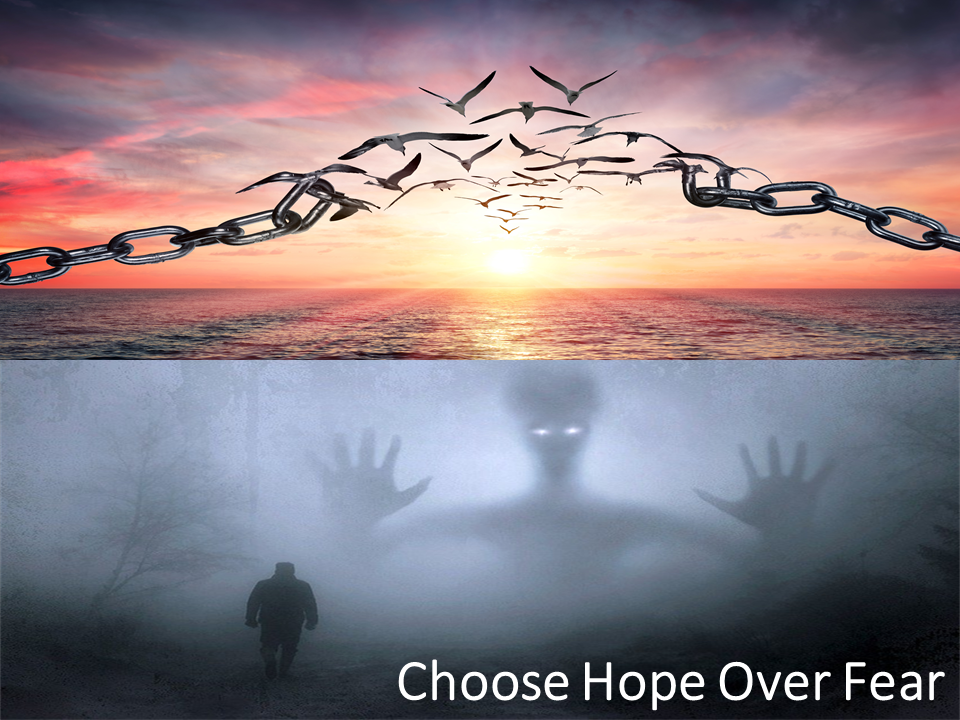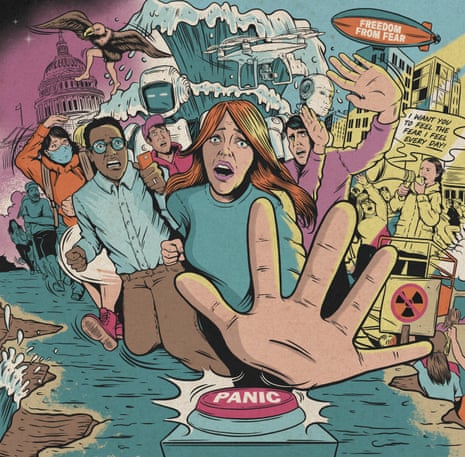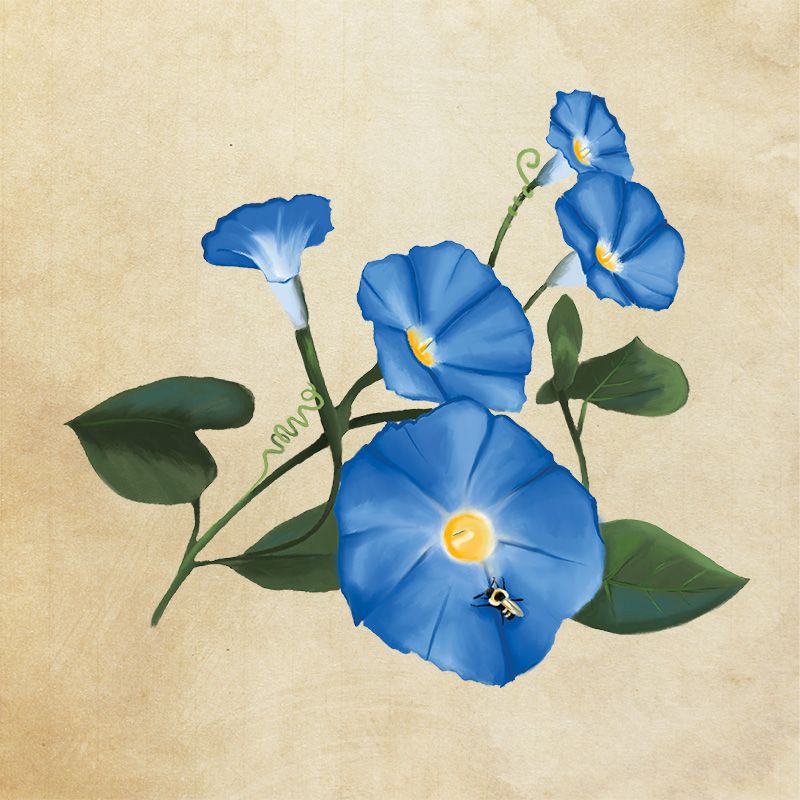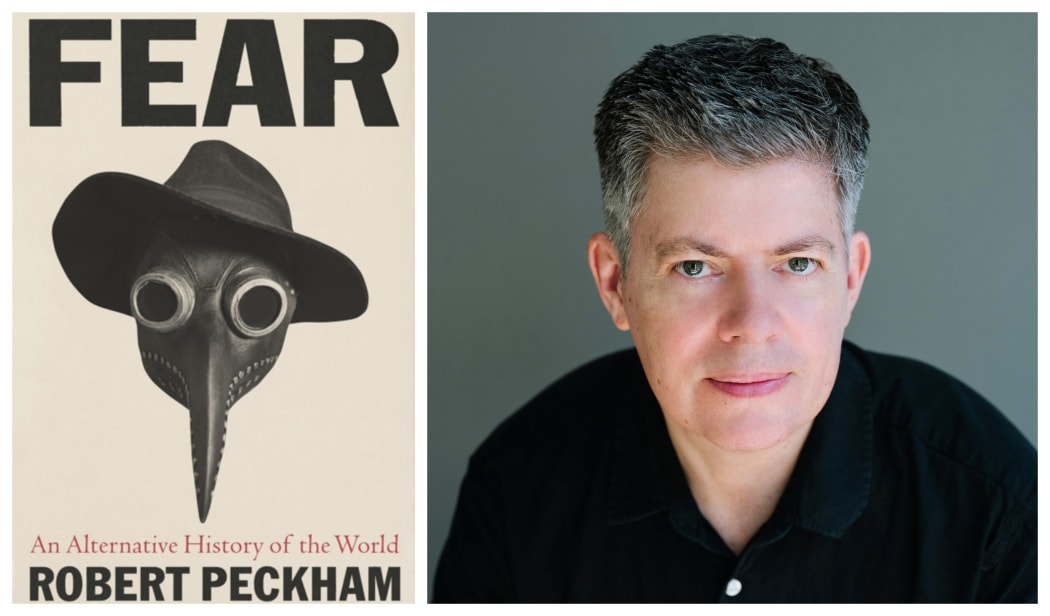Addressing our collective suffering across the world and across time
'We live in troubled times, but can fear be a force for good?'
In short, can the history of fear also be the history of hope?

Photo via Thrive Global
N.B. When I get up each day and look all around me, and see what is happening across the globe, the questions that keep coming to my mind are, given the epidemic rise in fear, hopelessness and despair, that we are all seeing and feeling around us, can we really in all honesty live without hope, and can fear ultimately be the key that unlocks the door to hope? In short, can the history of fear also be the history of hope? These are some of the questions we’ll explore in this blog post, showing our solidarity and support for those who are struggling, whilst also giving ourselves hope that brighter days are ahead. We must not despair, but walk on. We must not fall, but stand tall. We must not just survive, but thrive all together.
'Hope springs eternal in the human breast,’ wrote Alexander Pope in his poem "An Essay on Man."
‘Hope is the belief we hold during tough times that things will get better. Hope is both a verb and a noun. As a verb, it means to want, expect, anticipate or yearn. As a noun it suggests optimism, anticipation, possibility and promise.’-Countway Library
'We live in troubled times, but can fear be a force for good?'
‘Anxiety is an obvious response to world events. But what if fear is actually a motivational emotion driving change? Here, author Robert Peckham reveals why the history of fear is the history of hope.’

Illustration by Cat Sims/Via The Guardian
‘On 22 January 1988, hordes of Pashtun mourners made the journey from Peshawar in Pakistan to Jalalabad in Afghanistan for the funeral of Bacha Khan, a political leader who campaigned against British colonial rule. Among them was Robert Peckham, a British student who was backpacking around the region. He hopped in a van with some friends, journalists and the editor of the Frontier Post and travelled along the winding Khyber Pass, a road punctuated by overtones of the Soviet-Afghan war: tanks, checkpoints and soldiers. A ceasefire had been negotiated and crowds flowed peacefully into Jalalabad to gather around Khan’s family home, where he wished to be buried.
'It was then, with the ceremony under way, that the first bomb went off. Peckham felt its force jolt through the crowd, which, he recalls, sustained its form momentarily before a second explosion sent people scattering. Buses that had transported mourners to the city were destroyed, the parking lot a scene of chaos. Fifteen people were killed, it would later emerge, and dozens were wounded. As he recounts in his book, Fear: An Alternative History of the World, a crowd that had been “unified in grief” was suddenly fragmented as people kicked and elbowed in a desperate scrabble for safety. “People were dazed, wondering how they would get home,” writes Peckham. “Some were sobbing. Fights broke out and guns were pointed.” As he and his group raced back along the Khyber Pass for the safety of Peshawar, stranded mourners attempted to hitch a ride, but their driver, cursing, sped past without stopping. “Panic,” Peckham recounts, “which made us human, also made us cruel.”
'It was a visceral experience, to be swept up in a stampeding crowd – to skirt death – and one that would shape Peckham’s subsequent career as an academic. He was struck by the way his personal experience of panic was entangled with loftier forces, from the Soviet incursion into British spheres of interest, to the shadow of colonialism. In that moment, seemingly abstract ideas were right there – quite literally exploding – in front of him. He wanted to understand how an emotion, such as fear, operated on both an individual and societal scale, and how – just like a panicking crowd – fear can evaporate our sense of self, simultaneously bringing us together and tearing us apart. To Peckham, fear seemed to be a central energising force driving history, one far more complex than most of us realise.
The pandemic, the war in Ukraine and the Israel-Hamas war have all pushed fear to the forefront of our minds, but evidence of human fears can be traced back thousands of years. The feeling has always been a facet of life, a primal neurological response designed to snap us into the moment, ready to fight or flee. People have found ways to express or contain these fears since we learned to make marks on rock. Cave art in Sulawesi, Indonesia, depicts monstrous half-human, half-animal creatures; at the site of a 9,000-year-old Neolithic settlement in Turkey, the walls are daubed with images of headless people and vultures with human legs. As humans evolved to write, pray and reason, so did our capacity to be led by thoughts and feelings. Fear gained new complexity; it no longer served as an instinct to save us from a rampaging woolly mammoth or wildfire, but as a social tool…’- Continue to read
A Must-read Book on Fear and Hope
Photo credit:RNZ
‘It's been said that, after 9/11, the 2008 financial crash and the Covid-19 pandemic, we're a more fearful society than ever before. Yet fear, and the panic it produces, have long been driving forces - perhaps the driving force - of world history: fear of God, of famine, war, disease, poverty, and other people. In Fear: An Alternative History of the World, Robert Peckham considers the impact of fear in history, as both a coercive tool of power and as a catalyst for social change. Beginning with the Black Death in the fourteenth century, Peckham traces a shadow history of fear. He takes us through the French Revolution and the social movements of the nineteenth century to modern market crashes, Cold War paranoia and the AIDS pandemic, into a digital culture increasingly marked by uniquely twenty-first-century fears. What did fear mean to us in the past, and how can a better understanding of it equip us to face the future? As Peckham demonstrates, fear can challenge as well as cement authority. Some crises have destroyed societies; others have been the making of them. Through the stories of the people and the moments that changed history, Fear: An Alternative History of the World reveals how fear and panic made us who we are.’
Read more and buy the book HERE
To support and complement what has been said and noted above, I now wish to recall a timeless poem of hope from Hafez, the 14th century Persian philosopher of love, a seeker of wisdom who became a poet of genius, a lover of truth who has transcended the ages. May this poem be a source of hope and inspiration to us, as we must remain positive; we must remain hopeful.
Don't Despair Walk On
Josef to his father in Canaan shall return, don't despair walk on;
and Jacob's hut will brighten with flowers, don't despair walk on.
Aching hearts heal in time, vanished hopes reappear,
the disparate mind will be pacified, don't despair walk on.
As the spring of life grows the newly green meadow,
roses will crown the sweet nightingale's song, don't despair walk on.
If the world does not turn to your whims these few days,
cosmic cycles are preparing to change, don't despair walk on.
If desperation whispers you will never know God,
it's the talk of hidden games in the veil, don't despair walk on.
O heart, when the vast flood slashes life to its roots,
Captain Noah waits to steer you ashore, don't despair walk on.
If you trek as a pilgrim through sands to Kaabeh,
with thorns lodged deep in your soul shouting why, don't despair walk on.
Though oases hide dangers and your destiny's far,
there's no pathway that goes on forever, don't despair walk on.
My trials and enemies face me on their own,
but mystery always backs up my stand, don't despair walk on.
Hafez, weakened by poverty, alone in the dark,
this night is your pathway into the light, don't despair walk on.
(Reprinted from: Hafez: Teachings of the Philosopher of Love )

Photo credit: Good News
Fear and Hope, Despair and Optimism
A pick from our GCGI archive
How to defeat hatred and fear: Don't Despair Walk On
In Search of a Better Tomorrow: Reasons for Hope In Times of Uncertainty
In a world that seems so troubled, how do we hold on to hope?
New Year calls us to hope beyond despair and light beyond darkness
Eruption of Hope: Earth Day 2022
The IPCC Report- I Refuse to give up Hope: Earth Is A Mother that Never Dies
GCGI Our Journey of Hope is 20 Years Old
Journey to Healing: Let Me Know What is Essential
GCGI is our journey of hope and the sweet fruit of a labour of love. It is free to access, and it is ad-free too. We spend hundreds of hours, volunteering our labour and time, spreading the word about what is good and what matters most. If you think that's a worthy mission, as we do—one with powerful leverage to make the world a better place—then, please consider offering your moral and spiritual support by joining our circle of friends, spreading the word about the GCGI and forwarding the website to all those who may be interested.

Photo:Charleston Magazine

